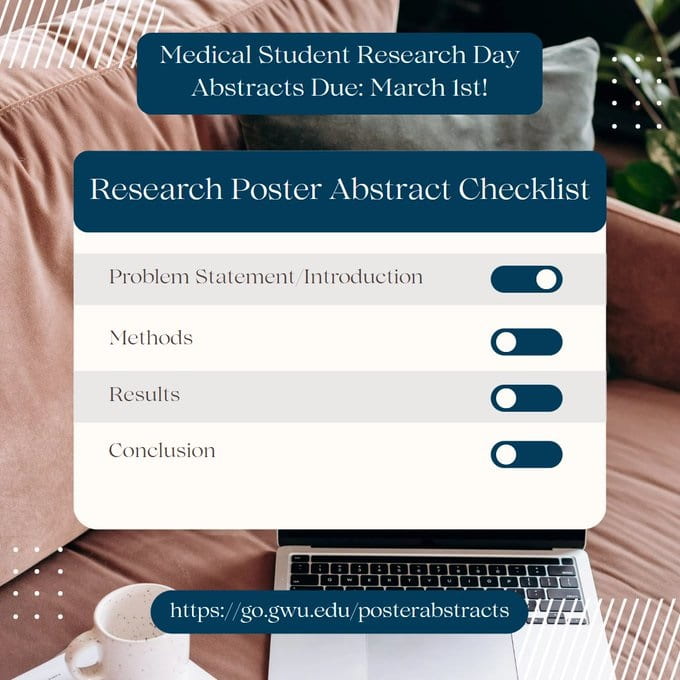GW Medical Student Research Day is scheduled for Wednesday, April 26, 2023 as a live in-person event at the University Student Center. There will be a plenary speaker and students will have an opportunity to share their research projects with a poster and oral presentation. Videos of past poster presentations are available on our Research Guide and YouTube channel.

Poster abstracts for Medical Student Research Day 2023 will be due on March 1st, a week from today! If you’re just starting to put an abstract together, or putting on the finishing touches, Himmelfarb Library has resources to help.
You can find much of what you need on our Research Day Resources: Writing Abstracts page. The guide outlines the basic components of a scientific abstract and provides both recommendations and examples for producing a quality abstract.
If you need more help you can chat our reference librarians or make an appointment with the GW Writing Center. The Writing Center now has Thursday hours from 6-8pm at Himmelfarb Library. We recommend scheduling an appointment in advance by calling 202-994-3765.
If your poster abstract is accepted, congratulations! Come back to our GW Research Day Resources Research Guide for valuable information and tips for designing a winning poster and presenting it effectively.


